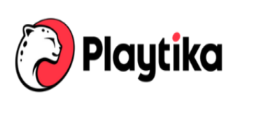Introduction:
Welcome to our in-depth guide to creating an online poker business. Online poker is booming in the digital era and presents lucrative potential for entrepreneurs. This guide navigates well whether you’re a novice or an experienced player running a gaming business. As we explore launching an online poker website, we’ll cover key considerations, steps, and insights for success. We’ll talk about marketing, software choices, and market analysis to ensure the success of your online poker business.
In this guide, we stress strategic planning, thorough research, and attention to detail for a thriving online poker website. We aim to provide knowledge and tools for all player types, from casual to professional, and niche demographics.
So let’s get started if you’re prepared to take this thrilling trip into the realm of online poker entrepreneurship. Let’s talk about how you can make your dream of having your own poker website a reality.
Market Research for Launching a Website for Online Poker:
Conducting extensive market research is essential prior to launching an online poker website. Key areas to concentrate on throughout your market research phase are as follows:
● Analysis of the Target Audience:
Determine who the online poker sites’ target market is. Take into account factors like geography, gender, age, and preferred video games. Determine which segment is interested in solutions If you are looking for white label poker software.
● Analysis of Competitors:
Examine the current poker websites that provide white label services. Examine their features, terms of service, levels of customisation, and client testimonials. Determine the major players in the market looking for white label poker software and test their advantages and disadvantages.
● Opportunities & Market Trends:
Stay informed about trends and opportunities in the online poker industry, with a focus on white label solutions. Track industry reports, market analyses, and news for growth areas, emerging tech, and player preferences
Legal Things to Think About Before Launching an Online Poker Website:
● Regulation and Licensing:
Find out the legal prerequisites in your target jurisdiction(s) for running an online poker business. Find out if you need a gaming license, and be aware of the rules governing internet gambling, which includes poker.
● Compliance with Know Your Customer (KYC) and Anti-Money Laundering (AML):
To prevent underage gambling, fraud, and money laundering on your poker site, put in place robust AML and KYC procedures. Make sure the players are who they say they are, follow up on transactions to look for unusual activity.
● Safeguarding players and practicing responsible gaming:
For the sake of the players’ wellbeing, emphasize player safety and responsible gaming. Put in place age verification procedures to keep children off your platform. Encourage responsible gambling by providing time-out choices, deposit caps, and self-exclusion.
● Rights to Intellectual Property:
It is important to uphold intellectual property rights when creating and managing an online poker business. Make sure that the software, visuals, branding, and content are all original.
● Regulations about marketing and advertising:
Avoid misleading advertising, and make sure that promotions adhere to rules and regulations. Clearly state the risks associated with gaming and provide advice on safe play.
● Privacy and Data Protection:
Before gathering any player data, abide by GDPR and obtain their consent. To protect sensitive data, use encryption.

Selecting a Software Vendor to Launch an Online Poker Platform:
When starting an online poker site and looking for white label poker software solutions, choosing the right provider is crucial. Think about these important elements:
● Credibility and Dependability:
Seek out providers who have a track record of providing dependable, superior white label services. Consult other operators’ reviews and suggestions.
● Personalization Choices:
Test each provider’s choices for customisation. Look for suppliers who can give functionality and design flexibility for a one-of-a-kind platform.
● Variety and Quality of Games:
Look for providers that offer Texas Hold’em, Omaha, and Stud, among other poker variations. Assure fluid gameplay, lag-free graphics, and dependable server performance.
● Safety and Adherence:
Ensure the white label solution has strong security features such as encryption and anti-fraud systems. They safeguard player information and transactions.
● Support and Scalability:
Choose a supplier who can expand to accommodate your company’s expanding needs. To ensure seamless operation, confirm technical support, training, and maintenance.
● Licensing and Pricing:
Analyze cost-effectiveness in light of projected revenue and budget. Take into account up-front payments, income sharing, and maintenance or customisation expenses.
Developing a Website to Launch an Online Poker Business:
This is a thorough how-to tutorial for developing a website for an online poker room:
● Organizing and Creating:
Establish the aims and objectives of your online poker room first. Think about things like the intended feature set, the target market, and branding components. To see the layout and design of the website, create a wireframe or mockup of it.
● Front-end Programming:
Frontend developers use HTML, CSS, and JavaScript to code the website after the design is approved. They create responsive layouts for all devices. This entails emphasizing user-friendly navigation, unambiguous buttons, and captivating graphics.
● Development of Backend:
Your poker site’s server-side features and architecture are created by backend developers. They develop game logic, user authentication, and database integration using PHP, Python, or Ruby to create a stable system.
● Integrating Games:
Integrate the online poker games with the backend system of your website. To link games to your platform, this can require custom development or API connectivity, depending on your provider.
● Integration of Payment Gateways:
Depending on audience preferences and local laws, offer different payment alternatives. Assure adherence to PCI-DSS guidelines for the safe handling of sensitive payment information.
● Quality Control and Testing:
Make sure your website is fully tested for usability, bugs, and problems before launching. Perform tests for compatibility, functionality, and usability on various browsers and devices.
● Deployment and Launch:
Coordinate with web hosting providers to ensure optimal server performance, uptime, and security. Use monitoring and analytics tools to track traffic, player activity, and performance.

Starting an Online Poker Website: A Marketing Plan
● Decide Who Your Target Market Is:
Choose whether you want to target specialized niche markets or casual or professional players.
● Create a USP, or unique selling proposition:
This covers a range of games, incentives, competitions, and loyalty benefits.
● SEO-friendly website optimization:
Use SEO to increase the visibility and traffic to your website.
● Marketing using Content:
Create interesting material that appeals to your target market.
● Marketing on social media:
Connect with gamers and advertise your poker site on social media.
● Email Promotion:
Build a poker fan email list and send focused campaigns.
● Affiliate Promotion:
To promote your poker site, collaborate with influencers and gambling affiliates.
● Advertising That Is Paid:
For more targeted traffic and a broader audience, spend money on sponsored content, display ads, and PPC advertising.
● Participation in the Community:
Create a player community by utilizing social groups, chat rooms, and forums.
● Performance Tracking and Optimization:
Track key metrics like website traffic, player registrations, & revenue to gauge marketing effectiveness.
Processing Payments to Launch an Online Poker Business:
- Select your payment options.
- Join forces with PSPs, or payment service providers
- Put in place a safe payment gateway
- Confirm the identity of the player.
- Limits on Deposit and Withdrawal
- Assure Adherence
- Give clear terms and conditions.
- Monitor and evaluate
Strategies for Retaining Players on an Online Poker Website:
To guarantee long-term success and profitability, you must concentrate on player retention after your online poker business has begun. The following tactics will assist you in attracting and keeping a devoted player base:
- Bonuses and promotions for newcomers
- Program for Loyalty Rewards
- Continual Competitions and Events
- High Roller and VIP Programs
- Customized Wording
- Interesting Content and Community
- Quick and Reactive Customer Service
- Constant Enhancement
Customer Service for Launching an Internet Poker Platform:
Having dependable customer service is essential to your poker site’s player pleasure. The following are important tactics:
● Multichannel Assistance:
Provide a variety of assistance avenues, such as phone, email, and live chat.
● Real-time chat:
Provide players with real-time assistance via live chat. Provide it with receptive agents to answer questions and take care of problems quickly.
● Email Assistance:
Provide specific email addresses for player assistance, and reply as soon as possible. Standardize your templates to make collaboration easier.
● Phone assistance:
This accommodates players who would rather talk to a representative face-to-face.
● FAQs and the knowledge base:
For player assistance, include a comprehensive knowledge base and FAQs area on your website.
● Agents who are knowledgeable and responsive:
Develop the responsiveness, knowledge, and empathy of support agents through training.
● Proactive Interaction:
Inform players of any updates, modifications, or maintenance. Send announcements on your website, in-game chats, or email notifications.
● Recommendations and Enhancements:
To find areas that need improvement, use questionnaires or feedback forms.
● Constant observation and development:
Monitor support data on a regular basis, such as response times and satisfaction ratings.
Conclusion:
In conclusion, launching an online poker website is challenging yet rewarding. This guide provides the tools for success through planning and player satisfaction.
This guide covers everything from market research to software selection. It also addresses marketing and customer support for launching an online poker site. Focusing on player retention, improvement, and compliance ensures an engaging gaming experience.
Launching and managing an online poker website demands adaptability, responsiveness to player feedback. It also requires proactivity in addressing industry trends. With dedication and a commitment to excellence, you can turn your vision into reality. Whether a seasoned entrepreneur or newcomer, online poker offers opportunities for growth. It also presents avenues for innovation. Take the first step, fuel your passion, and embark on an exciting journey to create a thriving platform.

FAQs:
1. What software is needed to start an online poker website?
To start an online poker site, you need software with key features like game variants and player management. It should also include payment processing and security measures.” Choose between custom development or a white label solution from a trusted provider.
2. How do I ensure the security of player transactions and data on my online poker website?
Secure player transactions and data with SSL encryption and firewalls. Adhere to industry standards such as PCI-DSS for compliance and protection against cyber threats.
3. What payment methods can I offer on my online poker website?
Offer a variety of payment methods, such as cards, e-wallets, bank transfers, and cryptocurrencies. These options cater to player preferences. Partner with reputable payment service providers to ensure secure and reliable payment processing.
4. How do I prevent cheating and collusion on my online poker website?
Use anti-cheating measures such as RNGs, hand history tracking, and player behavior analysis. These are essential to detect and prevent cheating. Enforce strict security protocols and track player activity to maintain game integrity
5. What technical support options are available for players on my online poker website?
Offer various support channels like live chat, email, and phone. Ensure a knowledgeable, responsive team is available for technical assistance.















